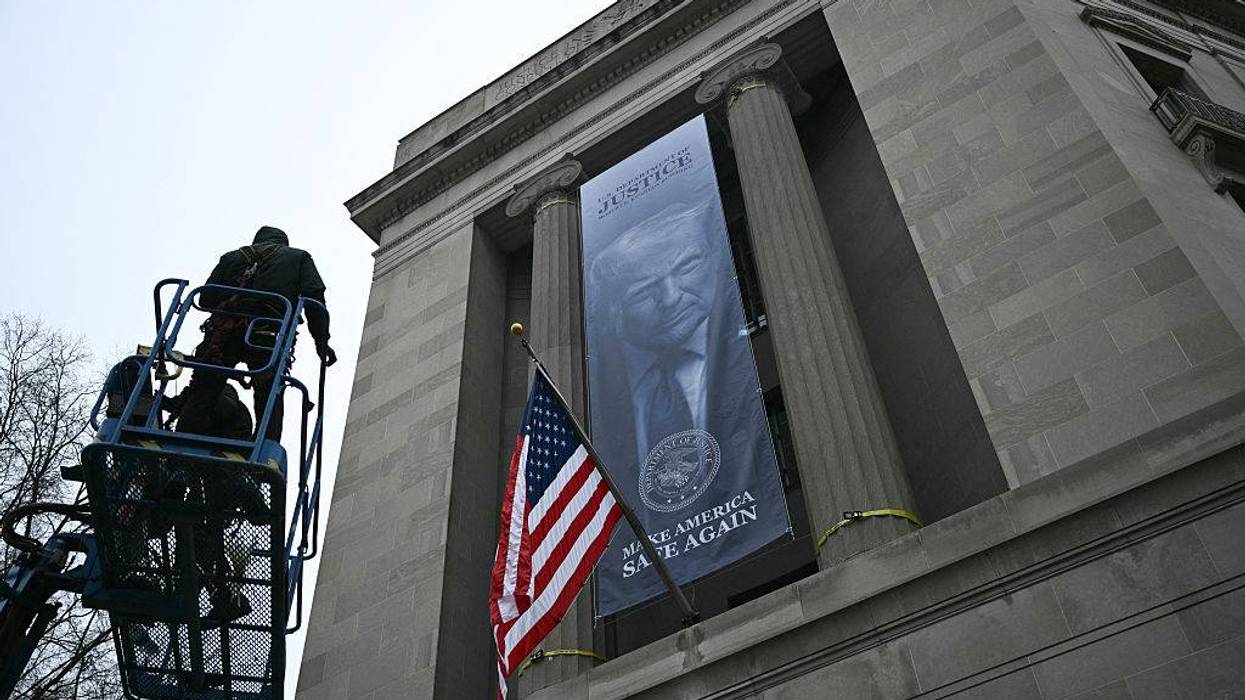Sens. Bernie Sanders (I-Vt.), Chuck Grassley (R-Iowa), Ron Wyden (D-Ore.), and Mike Lee (R-Utah) Wednesday introduced the Audit the Pentagon Act of 2021, which would require the Department of Defense (DOD) to finally pass a full independent audit beginning in fiscal year 2022. Under the bill, each branch of the military and part of the DOD that fails to obtain a clean audit opinion would return one percent of its budget to the Treasury.
"The Pentagon and the military industrial complex have been plagued by a massive amount of waste, fraud, and financial mismanagement for decades. That is absolutely unacceptable," said Sen. Sanders. "If we are serious about spending taxpayer dollars wisely and effectively, we have got to end the absurdity of the Pentagon being the only agency in the federal government that has not passed an independent audit. The time is long overdue for Congress to hold the Defense Department to the same level of accountability as the rest of the government. That is the very least we can do."
"For decades, the Defense Department has been losing the battle against wasteful spending," said Sen. Grassley. "We've seen example after example of excessive and inefficient spending by the Pentagon, and every dollar squandered is a dollar not being used to support our men and women in uniform. After 30 years to get ready, this bill pushes the Defense Department to finally achieve a clean annual audit - a requirement that every other federal agency is held to."
"Taxpayers can't afford to keep writing blank check after blank check for the Pentagon to cash," said Sen. Wyden. "If the Department of Defense cannot pass a clean audit, as required by law, there ought to be tough, financial consequences."
"While providing for the common defense is one of the most important jobs of the federal government, it ought to be done in a way that uses our limited resources responsibly," said Sen. Lee. "By requiring the DOD to achieve a clean audit opinion starting in FY22, this bill will provide needed transparency and accountability in its use of taxpayer dollars."
The Defense Department remains the only federal agency in the United States that has been unable to pass an independent audit, despite the fact that the Pentagon consumes more than half of the nation's discretionary budget and controls assets in excess of $3.1 trillion, or roughly 78 percent of the entire federal government. Federal agencies have also been mandated by Congress to comply with annual audits by the Government Accountability Office since 1990, a requirement continually unfulfilled largely due to the DOD's inability to pass an audit.
In 2011, the Commission on Wartime Contracting in Iraq and Afghanistan concluded that $31-60 billion spent in Iraq and Afghanistan had been lost to fraud and waste. In 2015, the Special Inspector General for Afghanistan Reconstruction reported that the Pentagon could not account for $45 billion in funding for reconstruction projects. In 2018, an audit conducted by Ernst & Young for the Defense Logistics Agency found that the Pentagon could not properly account for some $800 million in construction projects.
Currently, the U.S. spends more on our nation's military than the next twelve countries combined and about half of the Pentagon's budget goes directly into the hands of private contractors, not our troops. Meanwhile, half of our people are struggling paycheck to paycheck, over 40 million Americans are living in poverty, and over 500,000 Americans are homeless including roughly 40,000 veterans.
Congress has appropriated so much money for the Defense Department that the Pentagon does not know what to do with it. According to the GAO, between 2013 and 2018 the Pentagon returned more than $80 billion in funding back to the Treasury. And, over the past two decades, virtually every major defense contractor in the U.S. has paid billions of dollars in fines and settlements for misconduct and fraud - all while making huge profits on those government contracts.
On September 10, 2001, former Secretary of Defense Donald Rumsfeld said, "Our financial systems are decades old. According to some estimates, we cannot track $2.3 trillion in transactions. We cannot share information from floor to floor in this building because it's stored on dozens of technological systems that are inaccessible or incompatible."
It's almost two decades later and the DOD still cannot account for trillions of dollars in transactions and has not come close to passing a clean audit. This would change with the Audit the Pentagon Act of 2021.
Read the full bill text here.
Read the fact sheet here.





